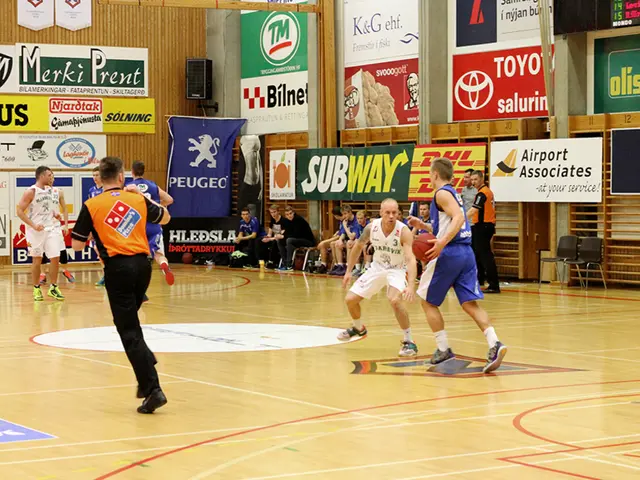EU ponders trade penalties towards Israel
In a developing situation, the Israeli military has intensified its ground operations in the Gaza Strip, with two divisions currently engaged and a third expected to join in the coming days. This escalation comes after over two years of bombardment, which humanitarian organizations have described as one of the worst humanitarian crises in recent decades.
The United Nations (UN) Secretary-General, Antonio Guterres, has condemned the situation as "horrific" and "systematic destruction." Guterres emphasized that Israel's obstruction of aid distribution and repeated forced displacement orders are morally, politically, and legally unacceptable.
Since Israel resumed intensive attacks on Gaza on March 18, 2023, at least 12,413 people have been killed and 53,271 wounded. The Israeli military has conducted at least 850 airstrikes on Gaza in one week, destroying approximately 2,000 buildings in the past month alone.
The UN Investigation Commission report indicates that genocide is taking place in Gaza, with Israel's actions meeting four out of five genocide criteria. The report highlights the disproportionate use of force against civilians, the forced displacement of populations, and the deliberate destruction of infrastructure essential to the survival of the civilian population.
The U.N. Secretary-General also stated that Israel has no interest in serious negotiations for a ceasefire and the release of hostages, as evident in the attack on the Hamas negotiation team in Qatar.
Hamas has characterised the expanded ground operations as "a new phase of genocide and ethnic cleansing," stating that the attacks are being carried out with open political and military support from the United States.
In response, the European Union has announced measures to put pressure on the Israeli government regarding its policy in Gaza. These measures include potential diplomatic and economic actions to influence Israel's conduct in the region. The European Union will present these measures on Wednesday, including the potential suspension of trade privileges and imposition of sanctions on extremist ministers and violent settlers.
Israeli Prime Minister Benjamin Netanyahu announced that he will meet with U.S. President Donald Trump at the White House on Sept. 29. It remains unclear how this meeting will impact the ongoing crisis in Gaza.
The ground offensive represents an escalation of the crisis, with at least 86 bodies brought to hospitals in Gaza City alone following heavy bombardment. Many of the dead were women and children, with at least 23 civilians killed in bombings in northwestern Gaza City and 20 bodies recovered from rubble in the city's central area, along with 15 wounded.
The total death toll across the Gaza Strip reached 101, including nine killed in central Gaza and six in southern areas. Since Oct. 7, 2023, Israeli attacks on the Gaza Strip have killed at least 64,964 Palestinians and wounded 165,312.
The Israeli military has threatened that airstrikes would continue in areas where ground forces have entered. Guterres stated that deploying a U.N. force to protect civilians in Gaza would be rejected by Israel and the United States.
As the crisis in Gaza continues to escalate, the international community must take action to prevent further loss of life and ensure the protection of civilians. The UN, EU, and other nations must press for an immediate ceasefire, humanitarian access, and serious negotiations for a lasting peace.
Read also:
- United States tariffs pose a threat to India, necessitating the recruitment of adept negotiators or strategists, similar to those who had influenced Trump's decisions.
- Weekly happenings in the German Federal Parliament (Bundestag)
- Southwest region's most popular posts, accompanied by an inquiry:
- Discussion between Putin and Trump in Alaska could potentially overshadow Ukraine's concerns







